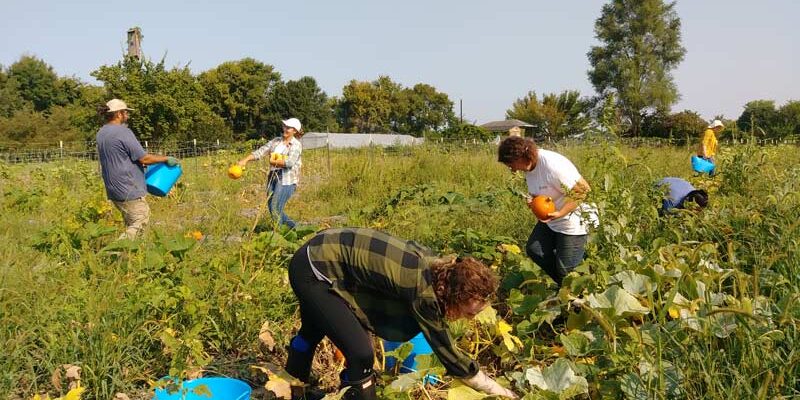Eating for a Healthier Planet
Tom, my dear husband, stopped eating meat a dozen years ago. While traveling one day, we passed a truck full of turkeys on their way to slaughter. I saw the look of horror on his face. He had been gradually reducing his consumption of meat for a few years due to concern about how livestock animals are raised, fed and slaughtered. A family history of high cholesterol weighed on his mind, too. He had already stopped eating all beef, most pork and never ate lamb. He’d eat chicken or turkey mainly.
The image of a thousand turkeys jammed in a semi-tractor trailer hurtling to their death was too much though. He was done. My journey of cooking meatless meals began.

Until Tom’s pivotal moment, our meals were meat centric. Rarely did I make dinner without meat as the main focus. I had a lot to learn fast! What are good sources of protein to substitute for meat? What the heck is tofu or tempeh and how the heck do you cook them? Will they taste good? Thankfully, he still eats dairy, eggs and some fish so that gave us a place to start.
As a cook, what have I learned? I’ve learned that meals don’t need to include meat to be tasty and healthy! Mushrooms, nuts, beans, lentils and yes, tofu and tempeh, are delicious and satisfying. Indian, Italian, Greek, Middle Eastern and Asian cuisines all lend themselves quite nicely to meatless versions of meat-filled favorites. It’s true!

As an environmentalist, I have also learned a lot in the last few years about the impact of our meat-forward eating habits on our plant.
“How food is produced, what is consumed, and how much is lost or wasted all heavily shape the health of both people and the planet.”
The above statement from the British medical journal, The Lancet, succinctly summarizes the vast and growing body of knowledge around our diets and its impact on our planet. Current agricultural practices worldwide are the second leading source of carbon greenhouse emissions. Eliminating meat consumption for just one meal a day would significantly reduce the detrimental effects of factory farming on our environment.
After a dozen years, I can tell you that we eat better than ever. Our health indicators are much better now even as we have entered into our 60s. True confession? I am an omnivore. Sometimes, I really crave a good burger.
When I do, I buy grass-fed beef raised and processed by my local farmer and indulge with few regrets.
Bon appetit!
Note: Lorrie will be one of the presenters at our upcoming Sundays at the Woods: Eating for a Better Climate, where she will share more information about her journey.
While the upcoming event, scheduled for Nov. 3, is currently full, the Climate Change Task Force is considering future events. Email wvc@spsmw.org or call 812-535-2932 for more information!



Thanks, Lorrie, for this personal and practical article. You truly embody the has of White Violet.
Vegetaianism is the best thing for animals, for our planet, and for human health.